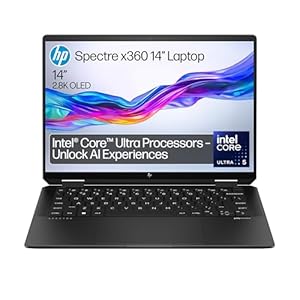When it comes to selecting the ideal laptop for gaming, you need to carefully weigh various factors to ensure a smooth and immersive gaming experience. From the graphics card to the processor, each component plays a crucial role in determining your gaming performance. However, there’s one often overlooked aspect that can significantly impact your gameplay. Intrigued to discover this critical factor that could make or break your gaming sessions? Stay tuned to uncover the key to choosing the perfect gaming laptop.
Graphics Card Selection
To ensure optimal gaming performance, choose a laptop with a powerful graphics card. The graphics card is a crucial component for running games smoothly and displaying high-quality visuals. When selecting a laptop for gaming, pay close attention to the graphics card specifications. Look for dedicated graphics cards from reputable manufacturers like NVIDIA or AMD for the best performance. These cards have their dedicated memory, allowing them to handle complex graphical tasks more efficiently.
A powerful graphics card ensures that you can play games at higher resolutions and frame rates without experiencing lag or stuttering. It also plays a significant role in rendering detailed textures, lighting effects, and realistic animations. For modern AAA games, a high-end graphics card is essential to enjoy the game as intended by developers. Additionally, a robust graphics card future-proofs your laptop for upcoming game releases that will likely demand more graphical processing power.
Processor Performance
For optimal gaming performance, consider the processor performance when choosing a laptop. The processor, also known as the CPU, is a critical component that heavily influences how well your laptop can handle gaming tasks. When looking for a gaming laptop, prioritize processors with multiple cores and high clock speeds.
Multi-core processors allow your laptop to handle multiple tasks simultaneously, making them ideal for gaming where many processes run concurrently. Additionally, high clock speeds ensure that your laptop can process instructions quickly, leading to smoother gameplay and faster load times.
Processors from brands like Intel and AMD offer various options to cater to different gaming needs. Intel’s Core i5 and i7 processors and AMD’s Ryzen series are popular choices among gamers due to their strong performance. When selecting a laptop for gaming, opt for a processor that matches the demands of modern games to ensure a seamless gaming experience. Remember, a powerful processor is just one piece of the puzzle; the next subtopic will cover RAM and storage capacity, completing the key components for a top-notch gaming laptop.
RAM and Storage Capacity
Considering the importance of RAM and storage capacity is crucial when selecting a gaming laptop that meets your performance needs. For gaming, a minimum of 8GB of RAM is recommended to ensure smooth gameplay and multitasking capabilities. However, for more demanding games and future-proofing, opting for 16GB or even 32GB of RAM can provide better performance. RAM helps in loading game assets quickly and running multiple applications simultaneously without lag.
In addition to RAM, storage capacity is also essential. Solid State Drives (SSDs) are preferred over Hard Disk Drives (HDDs) due to their faster loading times and data access speeds. A combination of SSD for the operating system and frequently played games, along with a larger HDD for general storage, offers a balanced approach. Consider at least a 256GB SSD or higher for storing games to reduce loading times significantly. Having sufficient storage space ensures you can keep multiple games installed without constantly needing to uninstall to free up space, allowing for a seamless gaming experience.
Display Features
When selecting a gaming laptop with sufficient RAM and storage capacity, now turn your attention to the display features that can enhance your gaming experience.
The display is where you’ll be immersing yourself in the game world, so it’s crucial to consider factors like resolution, refresh rate, and panel type.
Opt for a Full HD (1920 x 1080) or higher resolution to ensure crisp visuals with fine details. A high refresh rate, such as 120Hz or 144Hz, can make motion smoother and reduce motion blur, providing a more fluid gaming experience.
Additionally, consider the panel type – IPS panels offer better color accuracy and wider viewing angles compared to TN panels, enhancing your overall visual experience.
If you’re into competitive gaming, a fast response time of 3ms or lower can give you the edge in fast-paced games.
Trending Products













